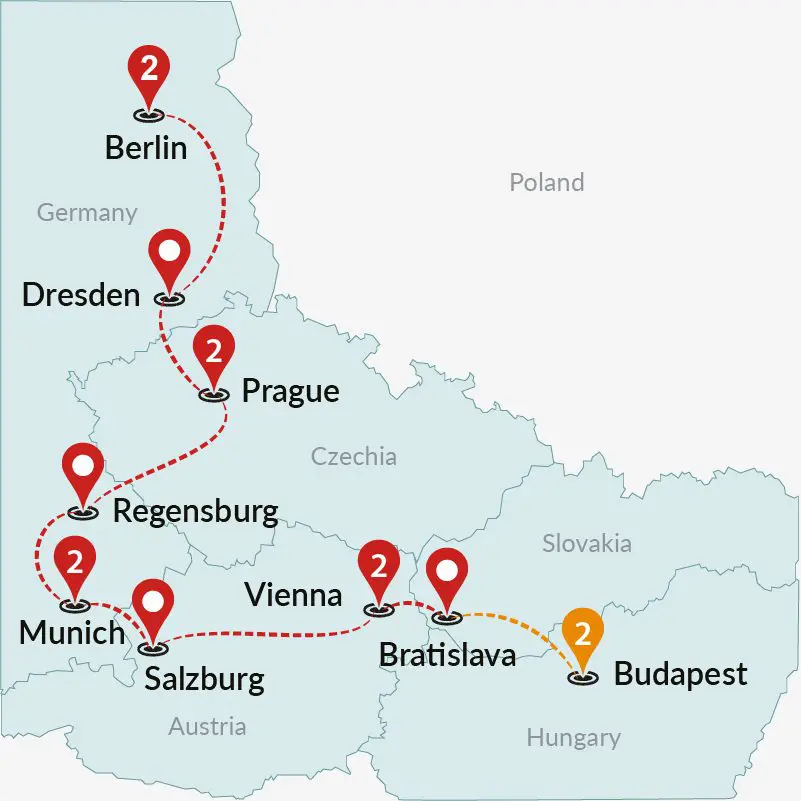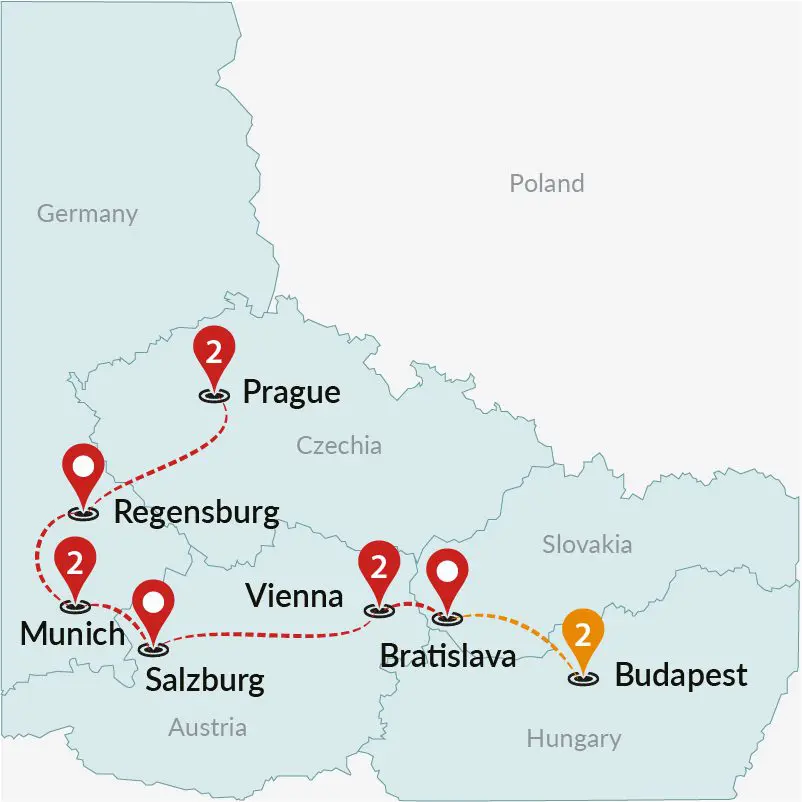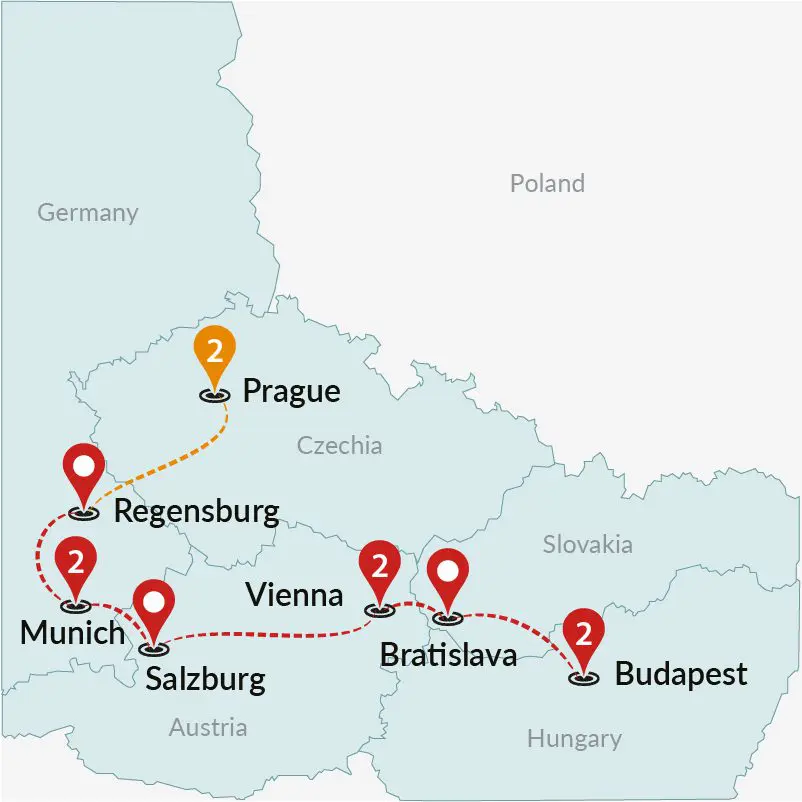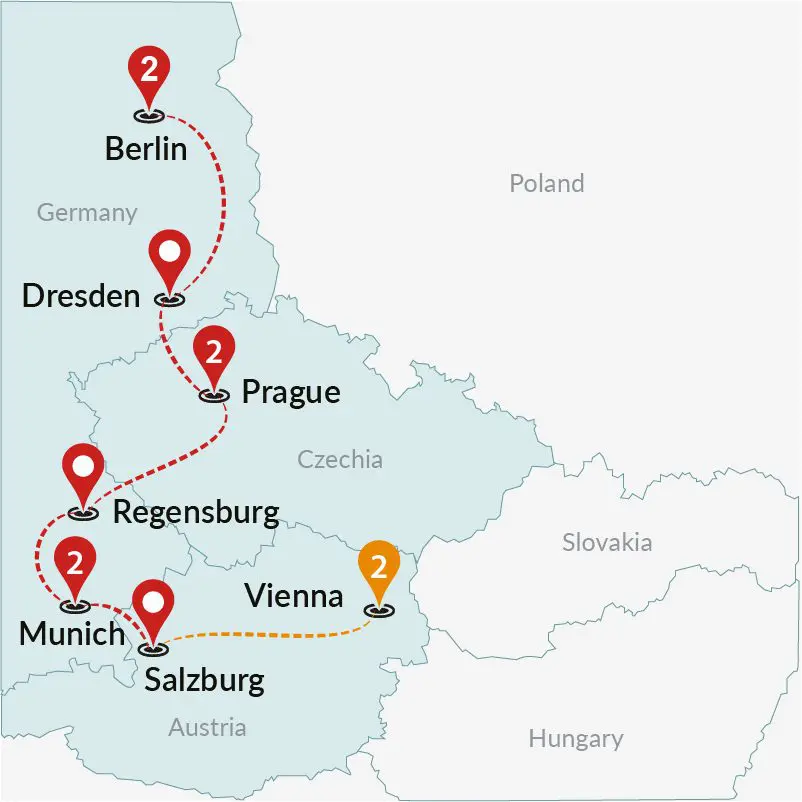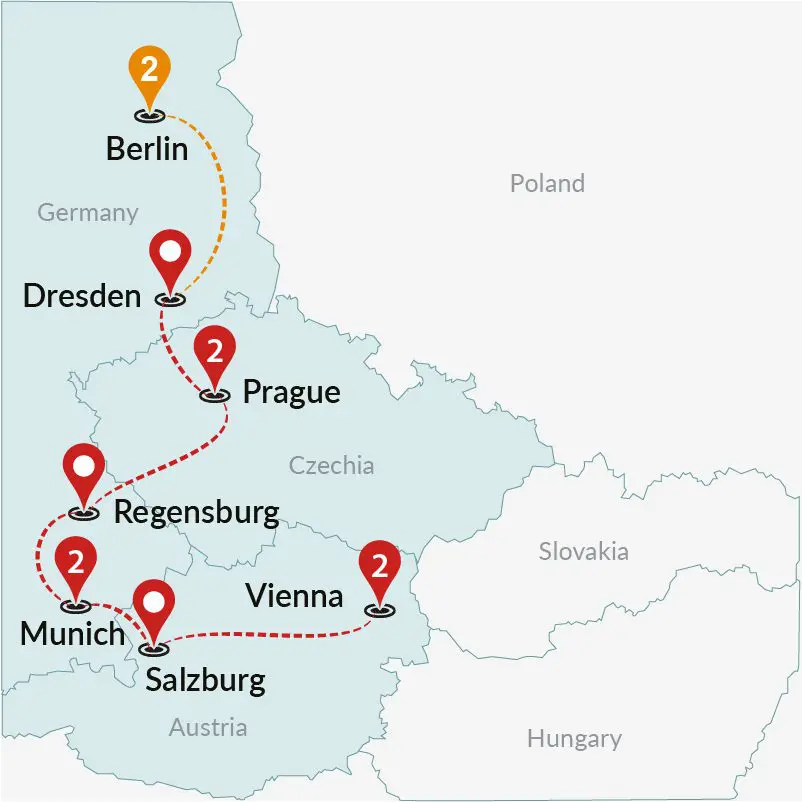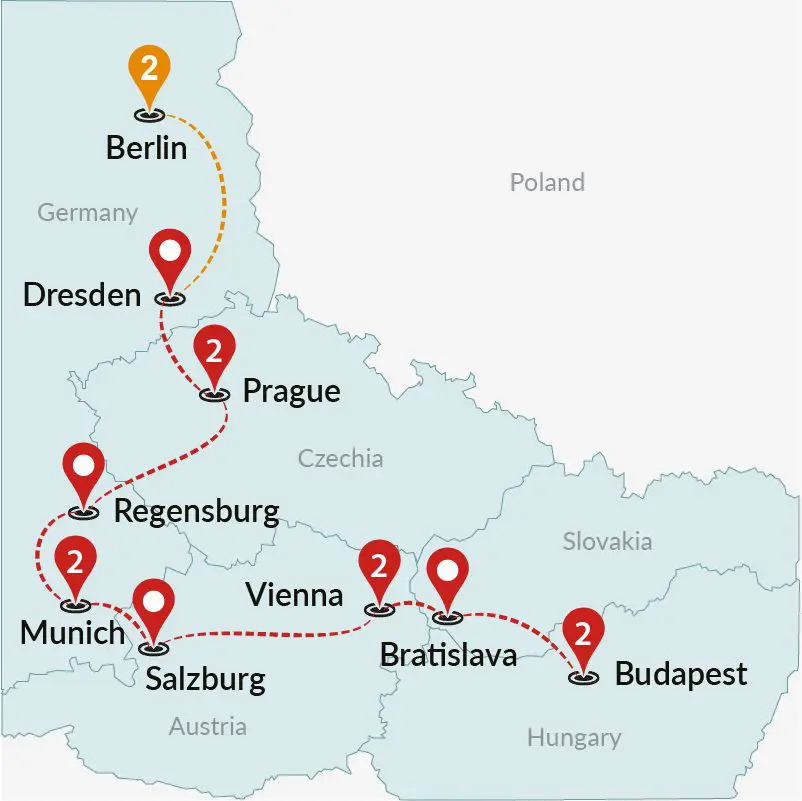Eating & Drinking
“In Central Europe, every bite tells a tale and every sip is a celebration! Let our forks dance to the rhythm of tradition!”
Central Europe boasts a rich and diverse culinary tapestry, reflecting the region’s history, geography, and cultural influences. One prominent aspect of Central European eating culture is the emphasis on hearty and flavorful dishes that often incorporate meat, potatoes, and root vegetables. Traditional staples like schnitzels, sausages, and goulash are celebrated across the region, each country adding its unique twist to these classics. The Czech Republic, for instance, takes pride in its iconic dish, svíčková, a marinated beef sirloin served with a creamy sauce and dumplings. Meanwhile, Hungary is renowned for its spicy and robust goulash, a stew that combines tender meat, paprika, and assorted vegetables.
Central European drinking culture is equally noteworthy, with a strong tradition of beer and wine consumption. Beer gardens and pubs are integral to social life, providing communal spaces where locals gather to unwind and share stories. The Czech Republic, home to the world’s highest beer consumption per capita, boasts a thriving beer culture with a plethora of local brews. In addition to beer, Central Europe has a rich winemaking heritage, particularly in countries like Hungary and Austria. Wine regions such as Tokaj in Hungary and Wachau in Austria produce exquisite wines that have gained international acclaim. Wine festivals and tastings are popular events, showcasing the region’s diverse grape varieties and winemaking techniques.
The dining experience in Central European culture is not just about the food and drink but also about the convivial atmosphere and the importance of sharing meals with family and friends. Long-standing traditions of hospitality are evident in the warm and welcoming ambiance of local eateries. Festivals and seasonal celebrations further enhance the culinary experience, with special dishes and drinks crafted to mark specific occasions. Central Europe’s eating and drinking culture is a reflection of its people’s pride in their heritage, creating a culinary landscape that is both inviting and deeply rooted in tradition.
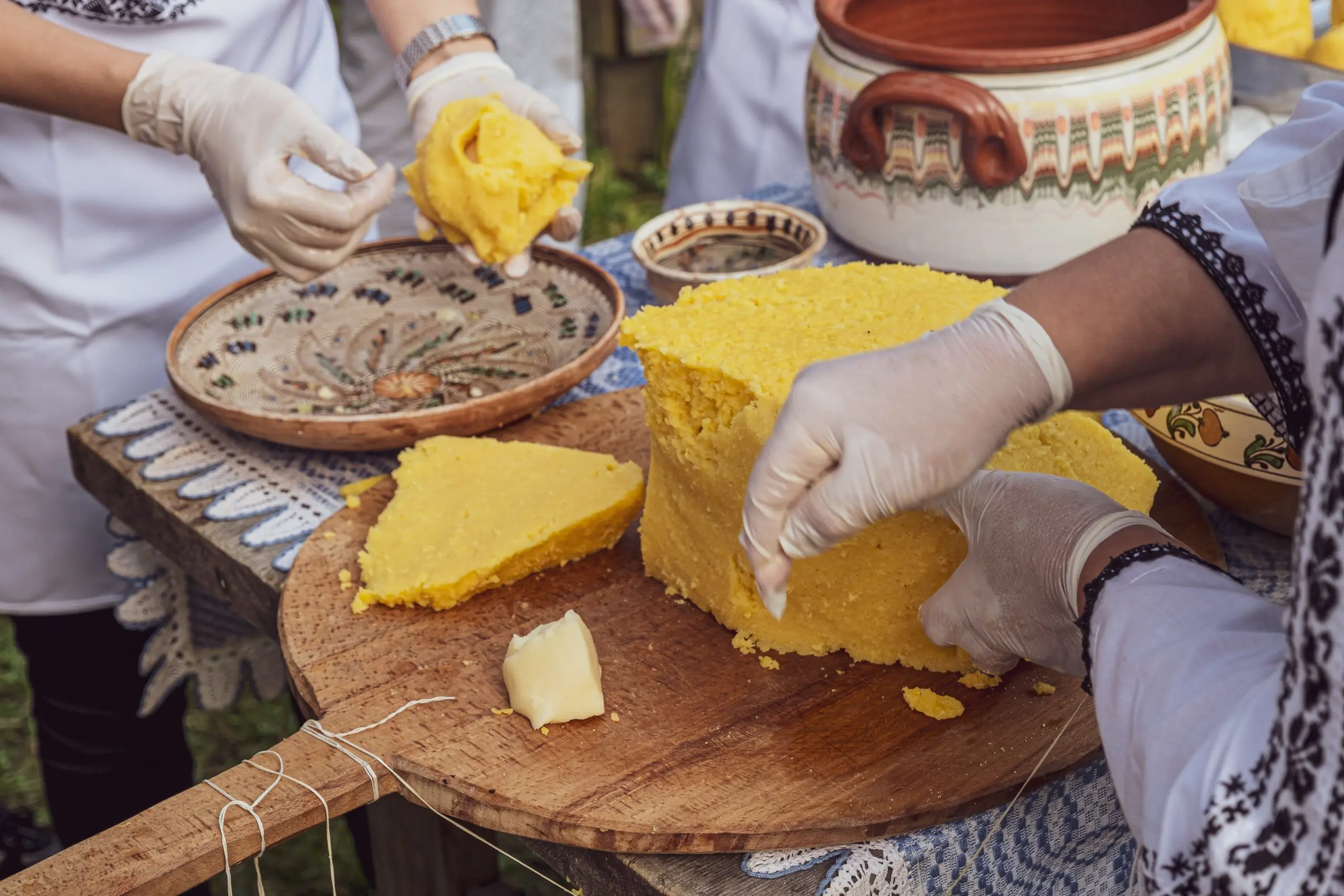
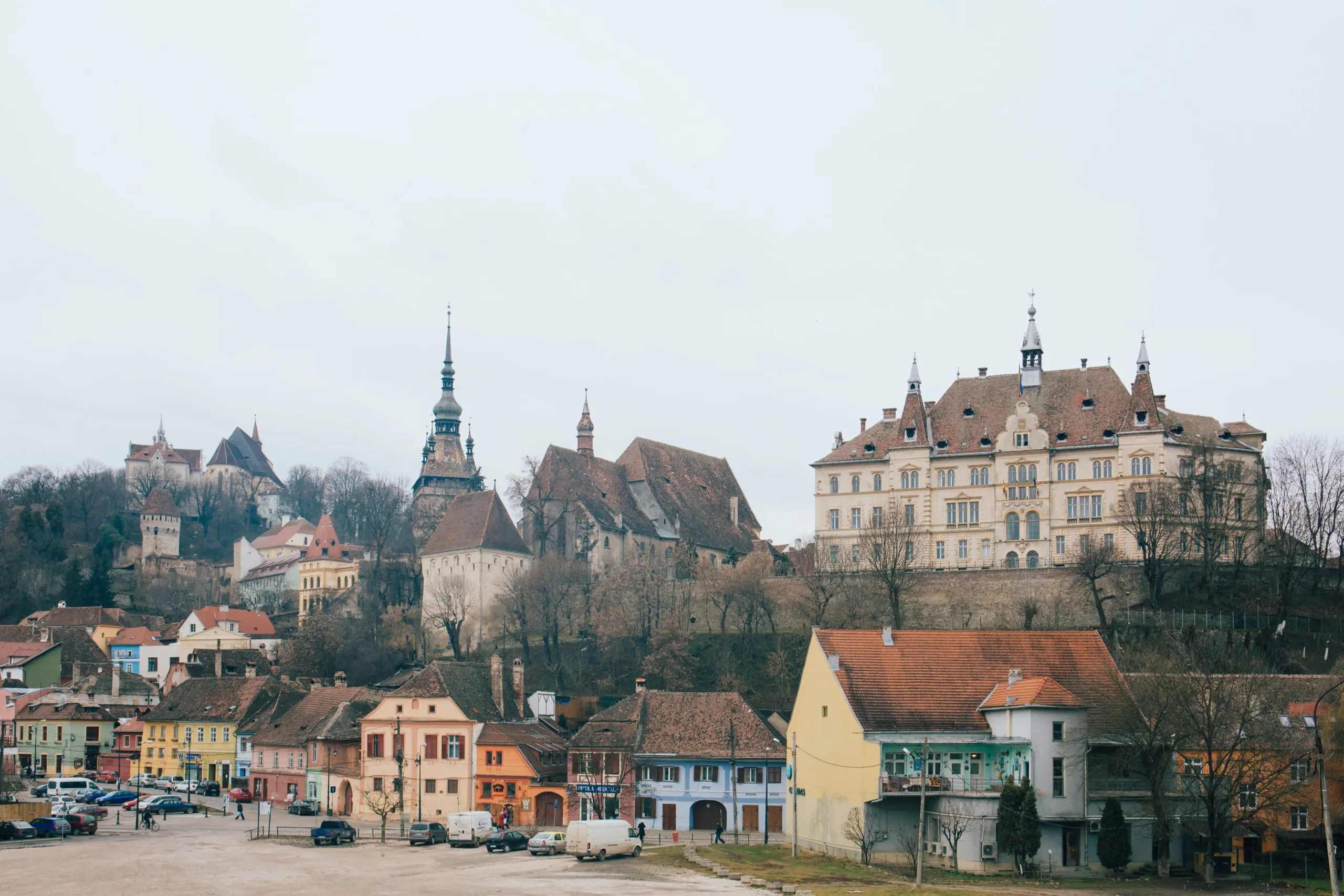
 December Sale; Save 50%
December Sale; Save 50%  Croatia Sailing : Save 50%
Croatia Sailing : Save 50% Asia Tours : 50% Off
Asia Tours : 50% Off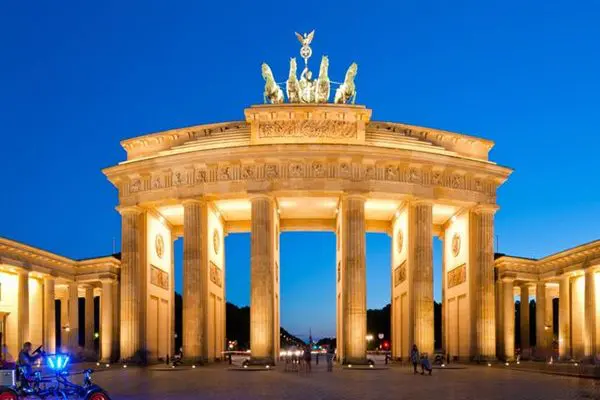 Central & Eastern Europe Tours: 50% Off
Central & Eastern Europe Tours: 50% Off  Why Travel Talk
Why Travel Talk Travel Talk Blog
Travel Talk Blog Responsible Travel
Responsible Travel Fair Travels with Travel Talk
Fair Travels with Travel Talk






